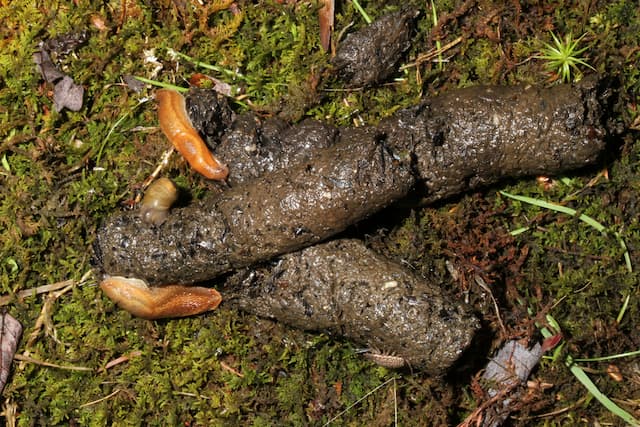The initial call to the property was for a customer who complained of raccoon feces on the roofline. Raccoons are a common issue in most of North America and tend to use properties they are not living on or eating from as a location for a latrine. They will do this often on roves of houses or sheds so as to keep the feces away from where they usually roam. In this way they are very clean animals, however, the danger of their feces is very high. Raccoon feces contains a dangerous spore called raccoon roundworm. This spore can become air born when the feces are dry. This means the spore can be inhaled. For this reason, a ventilator is needed to clean feces that have dry parts and especially if it is completely dry. This spore can enter your lungs and enter your bloodstream, grow into a worm and travel to your brain where it can cause shocking levels of harm.
Call Raccoon Control Today for a Quote!
Exterior Inspection
The exterior inspection found a large number of feces on the roofline. The feces was cleaned and then sterilized with hospital-grade botanical chemicals that are used in hospitals while patients are present. They can not harm any living and do not stain material surfaces, natural or synthetic. The area is then deodorized. This is not so much for the customer so they do not smell the feces as it is to keep the raccoon away. Sometimes, and this is not a guarantee, the raccoon will not smell itself at its latrine site and will move on thinking it has been replaced by a predator.
Initial Measures
The initial measures taken by the technician included the removal of raccoon feces followed by serialization and deodorization of the affected area.
Conclusion
In conclusion, the process was highly effective and the raccoon feces was cleaned sterilized and deodorized. The customer has yet to contact us about further feces clean up so the deodorizer in this instance worked.
